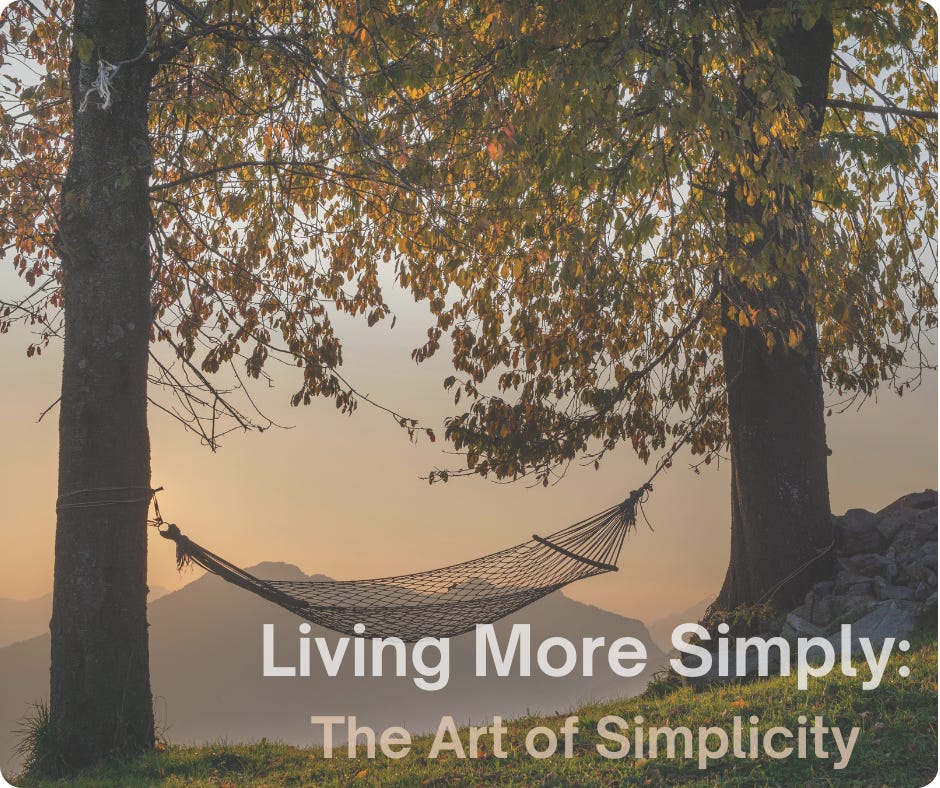Giving Thanks Makes Life Simpler
Giving thanks is an an action that can unlocks the potential for living more simply.
We all know that November is National Gratitude Month and that Thanksgiving is fast approaching. We also know that giving thanks is not a seasonal activity nor confined to a day marked on the calendar. It is an indispensable action that possesses the power to declutter and uncomplicate life. Cultivating a mindset that naturally and easily gives thanks o…
Keep reading with a 7-day free trial
Subscribe to The Compass: Navigating the Interior Journey to keep reading this post and get 7 days of free access to the full post archives.




